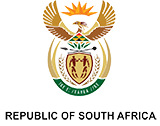Parliament to consider a constituency-based electoral system
Actions on recommendations
Noting that parts of the electoral reforms proposed by the Commission are currently under consideration in Parliament in relation to the Electoral Laws Amendment Bill, and considering that Parliament has a court-prescribed deadline to approve the Bill by 10 December 2022, it will be necessary to await the finalisation of the Bill before determining whether it satisfies the concerns raised by the Commission.
Progress
The Electoral Amendment Act, 2023 recently passed by Parliament makes provision in section 23 for an Electoral Reform Consultation Panel, which the Minister must establish. The functions of the Panel inter alia are to independently investigate, consult on, report on and make recommendations in respect of potential reforms of the electoral system for the election of the National Assembly and Provincial Legislatures.

